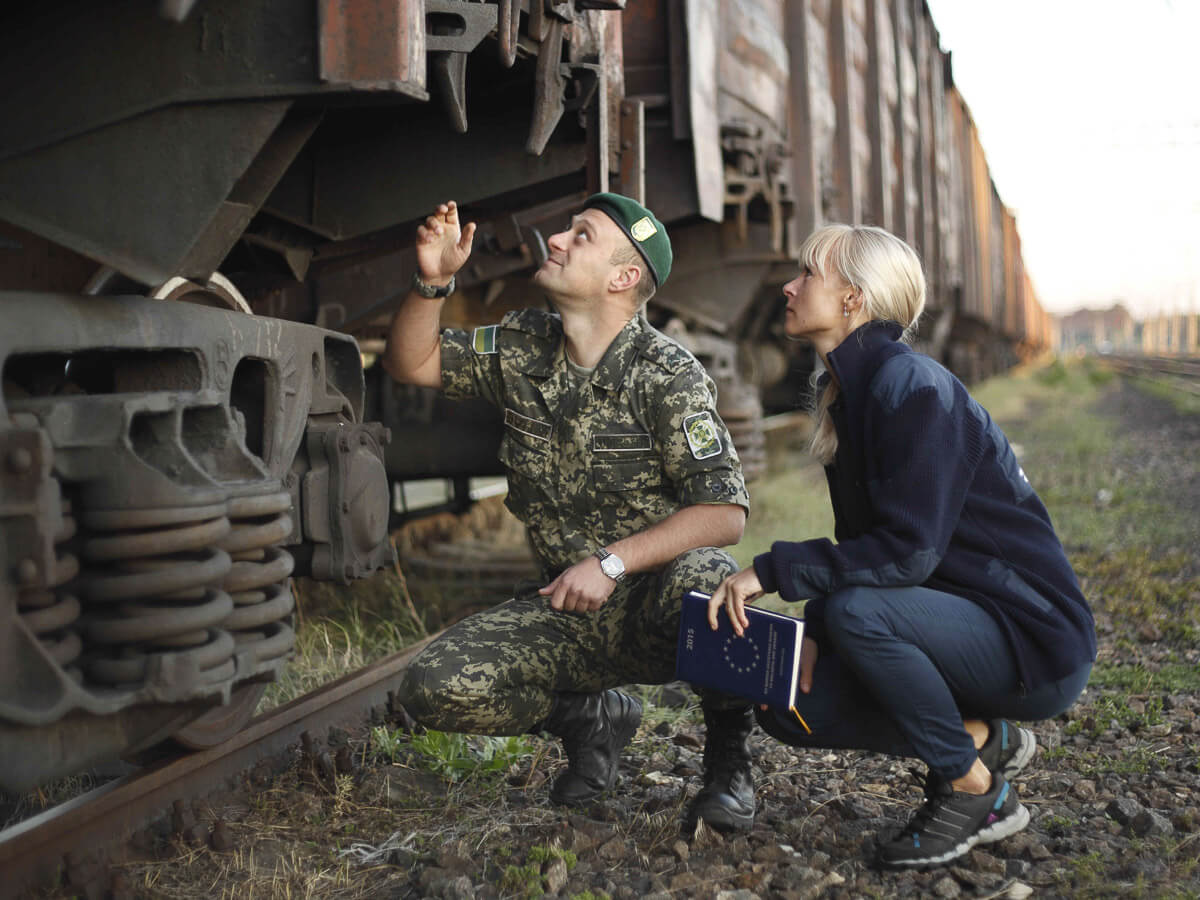Cross-Border Mechanisms For Effective Crime Fighting

Table of Contents
Enhanced International Law Enforcement Cooperation
Effective cross-border crime fighting hinges on robust collaboration between national law enforcement agencies. This necessitates seamless information sharing and intelligence gathering to track criminal networks and dismantle their operations. Transnational crime, whether it's drug trafficking, human trafficking, or cybercrime, requires a united front.
Joint Task Forces and Multinational Operations
Successful crime fighting often relies on the formation of joint task forces and multinational operations. These collaborative efforts pool resources, expertise, and intelligence, maximizing impact against sophisticated criminal organizations.
- Europol: The European Union Agency for Law Enforcement Cooperation plays a vital role in coordinating police and customs authorities across Europe, facilitating information exchange and joint investigations into cross-border crime.
- INTERPOL: As the world's largest international police organization, INTERPOL's global network is instrumental in connecting law enforcement agencies worldwide, enabling the sharing of critical information and the tracking of criminals across borders. Its databases and communication systems are essential tools in international crime fighting.
- Specific Examples: Numerous successful joint operations have targeted major organized crime syndicates, dismantling drug trafficking routes, apprehending human traffickers, and disrupting cybercrime networks. These operations demonstrate the effectiveness of coordinated international law enforcement efforts.
Extradition Treaties and Mutual Legal Assistance
Effective cross-border prosecution and asset recovery depend heavily on robust extradition treaties and mutual legal assistance (MLA) agreements. These legal frameworks establish the procedures for transferring suspects and sharing evidence across national borders.
- Challenges in Extradition: Differences in legal systems, varying definitions of crimes, and political considerations can create significant hurdles in the extradition process.
- Streamlined MLA Procedures: Efficient and streamlined procedures for mutual legal assistance are crucial to ensuring timely and effective investigations. Delays can hinder investigations and allow criminals to evade justice.
- International Conventions: International conventions, such as the UN Convention against Transnational Organized Crime, play a vital role in setting standards and frameworks for international legal cooperation.
Strengthening Judicial Cooperation and Legal Frameworks
Harmonizing legal definitions and procedures across national borders is paramount in tackling transnational crime. Inconsistencies in laws can create loopholes exploited by criminals. The development of unified legal frameworks and robust judicial cooperation are essential components of effective cross-border crime fighting.
International Criminal Courts and Tribunals
International Criminal Courts (ICCs) and special tribunals play a crucial role in prosecuting individuals responsible for serious international crimes, such as genocide, war crimes, and crimes against humanity.
- The International Criminal Court (ICC): The ICC's jurisdiction extends to crimes committed by individuals within states that have ratified the Rome Statute.
- Special Tribunals: Ad hoc tribunals, such as the International Criminal Tribunal for the former Yugoslavia (ICTY) and the International Criminal Tribunal for Rwanda (ICTR), have been established to address specific conflicts.
- Limitations and Challenges: International courts face limitations in terms of jurisdiction, enforcement, and resource constraints.
Cybercrime Legislation and Digital Forensics
The digital age presents unique challenges to cross-border crime fighting. Cybercrime often transcends geographical boundaries, requiring international cooperation to trace and prosecute offenders.
- International Agreements on Jurisdiction: Establishing clear jurisdictional rules and international agreements on cybercrime is crucial to ensure accountability.
- Data Sharing and Cooperation: Effective cyber investigations require seamless data sharing and cooperation between law enforcement agencies across countries.
- Tracing and Prosecuting Cybercriminals: The anonymous and borderless nature of the internet makes tracing and prosecuting cybercriminals across borders extremely challenging.
Utilizing Technology and Data Analytics for Crime Prevention
Technology and data analytics play an increasingly vital role in enhancing intelligence gathering, analysis, and crime prevention. These tools can improve the efficiency and effectiveness of cross-border crime fighting efforts.
Advanced Data Analysis and Predictive Policing
Big data analytics can be used to identify crime patterns, predict future criminal activity, and allocate resources effectively.
- Mapping Crime Patterns: Analyzing large datasets allows law enforcement to identify hotspots and trends in criminal activity, guiding resource allocation and preventive strategies.
- Predictive Policing: Predictive policing models use data analysis to anticipate future crime events, allowing for proactive interventions.
- Ethical Considerations: The use of data analytics raises ethical concerns regarding privacy and potential biases in algorithms.
Biometric Technologies and Facial Recognition
Biometric technologies, such as facial recognition, offer significant potential in identifying suspects and tracking their movement across borders.
- Identifying Suspects: Biometric data can help identify suspects and link them to criminal activities across jurisdictions.
- Privacy Concerns: The use of biometric technologies raises significant privacy concerns, requiring careful consideration of data protection and security.
- Legal Frameworks: Robust legal frameworks are essential to regulate the use of biometric technologies and prevent potential misuse.
Conclusion: The Future of Cross-Border Crime Fighting
Effective cross-border crime fighting demands a multifaceted approach, encompassing enhanced international law enforcement cooperation, robust judicial frameworks, and the strategic application of technology and data analytics. While significant progress has been made, challenges remain. Continued collaboration, innovation, and a commitment to addressing ethical considerations and protecting human rights are essential to building a more secure and just world. Learn more about initiatives such as those promoted by INTERPOL and the UN Office on Drugs and Crime to support policies that strengthen international cooperation in this crucial area. The fight against transnational crime requires sustained global effort, and informed engagement is crucial for building a future where cross-border crime is effectively countered.

Featured Posts
-
 Ali Larter On Her Relationship With Billy Bob Thornton Why It Works
May 13, 2025
Ali Larter On Her Relationship With Billy Bob Thornton Why It Works
May 13, 2025 -
 Extreme Heat In Indore 40 C Temperature Prompts Health Warning
May 13, 2025
Extreme Heat In Indore 40 C Temperature Prompts Health Warning
May 13, 2025 -
 Kemenangan Telak Persipura Jayapura Atas Rans Fc Di Playoff Liga 2
May 13, 2025
Kemenangan Telak Persipura Jayapura Atas Rans Fc Di Playoff Liga 2
May 13, 2025 -
 Donald Trumps Climate Decision Bbcs Chris Packham Delivers Sharp Criticism
May 13, 2025
Donald Trumps Climate Decision Bbcs Chris Packham Delivers Sharp Criticism
May 13, 2025 -
 Unending Nightmare Gaza Hostages Families Face Ongoing Hardship
May 13, 2025
Unending Nightmare Gaza Hostages Families Face Ongoing Hardship
May 13, 2025
